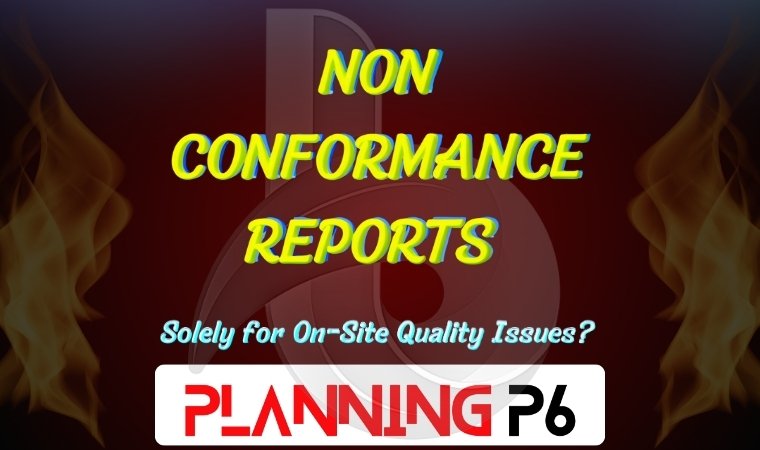
WHAT YOU’LL LEARN/SEARCH TITLES
✅Are NCRs Solely for On-Site Quality Issues?
✅Can NCRs Be Used for Off-Site Quality Concerns?
✅Beyond the Site: The Scope of Non-Conformance Reports
✅Non-Conformance Reports (NCRs): On-Site and Off-Site Applications
✅Expanding the Use of NCRs in Quality Management Systems
✅The Role of NCRs in Total Quality Management
✅Do NCRs Only Apply to Construction Sites?
✅Can NCRs Be Used for Remote Quality Assurance?
✅What is the Full Potential of Non-Conformance Reports?
DESCRIPTION
No, Non-Conformance Reports (NCRs) are not solely for on-site quality issues. They are a versatile tool used to document and address any deviation from specified standards, requirements, or procedures across various industries and processes.
The contract requires the project to adhere to ISO 9001:2015 (Quality Management Systems) and ISO 14001:2015 (Environmental Management Systems). These standards are comprehensive and apply to both operational processes and management practices, including risk management and compliance. The standards provide clear grounds for NCRs to address not only on-site quality issues but also compliance, documentation, and planning.
🔴 NCRs Can Be Utilized for A Wide Range of Non-Conformities, Including:
✅Manufacturing and Production: Defects in products, failures in production processes, or deviations from quality standards.
✅Engineering and Design: Design errors, incorrect specifications, or deviations from engineering standards.
✅Quality Assurance and Control: Non-conformities identified during inspections, tests, or audits.
✅Administrative and Procedural: Errors in documentation, procedural violations, or failures to follow established guidelines.
✅Supply Chain and Logistics: Issues with supplier performance, transportation, or storage.
🔴 Key Purposes of NCRs:
✅Formal Documentation: Provides a structured record of the non-conformance, including details like date, location, and severity.
✅Root Cause Analysis: Helps identify the underlying causes of the non-conformance to prevent recurrence.
✅Corrective Action: Outlines the actions needed to rectify the non-conformance and restore compliance.
✅Preventive Action: Identifies measures to prevent similar non-conformities from happening in the future.
✅Continuous Improvement: Contributes to the overall improvement of processes and systems.
🔴 ISO 9001:2015 – Quality Management System Requirements:
✅Clause 8.1: Operational Planning and Control: This clause mandates robust planning, control, and documentation of operational processes. Missing or incomplete records such as schedules, logs, and progress reports indicate lapses in planning and control, impacting overall quality management and are therefore valid reasons for NCRs.
✅Clause 8.2.3: Review of Requirements for Products and Services: This clause emphasizes that all contractual requirements, including maintaining accurate and current project records, are essential for quality assurance. Nonconformances in these areas can thus warrant NCRs.
✅Clause 8.5.1: Control of Production and Service Provision: This clause covers the control of production and related documentation. Consistent tracking and documentation of project management details (e.g., timelines, materials, procurement) are required to meet quality management standards.
✅Clause 10.2: Nonconformity and Corrective Action: NCRs can be raised for any deviation from documented processes, contractual obligations, or ISO requirements, including those related to documentation and compliance with management processes.
🔴 ISO 14001:2015 – Environmental Management System Requirements:
✅This standard mandates control over environmental aspects of projects, which includes the management of resources and maintenance of documentation. Failure to track materials or maintain accurate schedules and logs reflects gaps in environmental and operational compliance.
🔴 Clarification on Scope of Nonconformities:
Nonconformances extend beyond physical quality failures and include deficiencies in project management, compliance, and risk management. Under ISO standards, thorough documentation, accurate schedules, and proactive compliance with environmental and quality requirements are integral parts of an effective management system. Therefore, NCRs may be issued for any nonconformance in these areas, as these affect the overall project’s compliance with both the contract and ISO standards.
🔴 Conclusion:
Based on ISO standards and contractual obligations, NCRs can be issued for any noncompliance in project management, documentation, or risk management. The Consultant, as the Engineer’s representative, is fully authorized to raise NCRs for issues impacting compliance, documentation, or the quality management system. Compliance with these processes is essential to meet project and contractual requirements.
DISCUSSION FORUM TOPIC

ARE NON-CONFORMANCE REPORTS (NCR) EXCLUSIVELY INTENDED FOR ON-SITE QUALITY CONCERNS?





